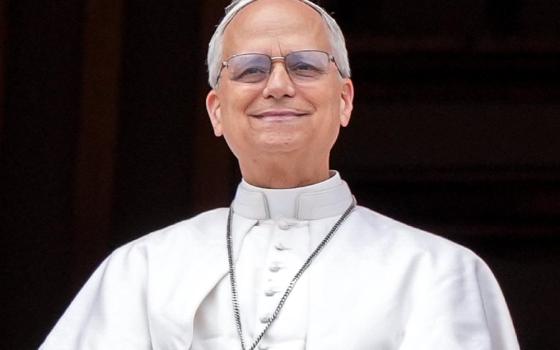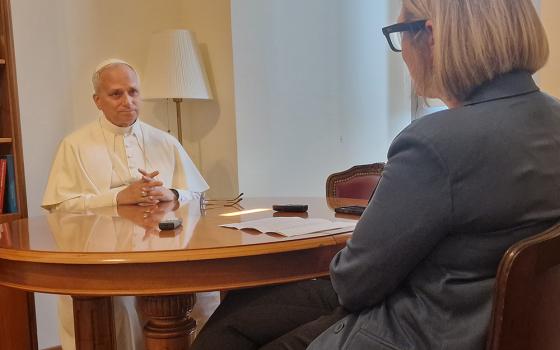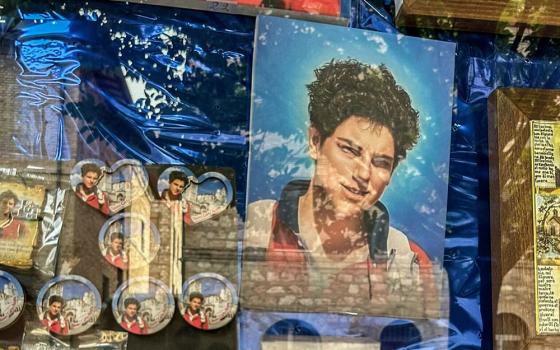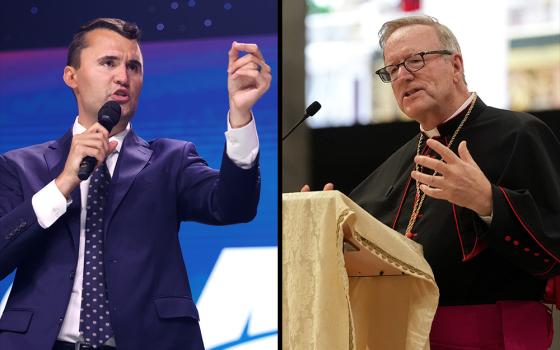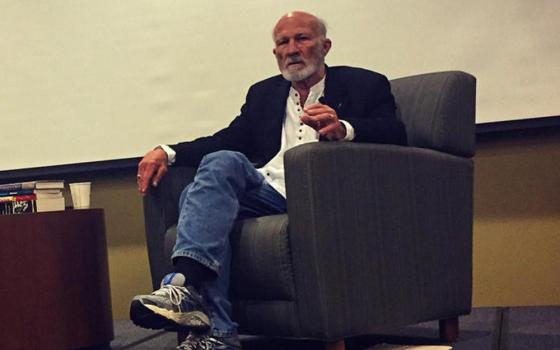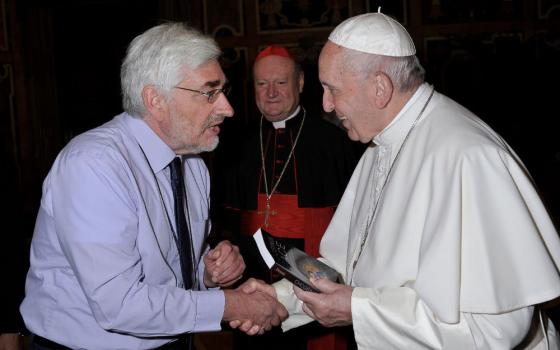Police pay homage to Mohandas Gandhi near Mumbai, India, Jan. 30, 2008, the 60th anniversary of the assassination of the independence leader and peace icon. Mahatma Gandhi, as he was popularly known, was killed by a Hindu extremist in 1948. (CNS/Reuters/Punit Paranjpe)
This week on "The Nonviolent Jesus Podcast," John Dear reflects on the life and lessons of Mahatma Gandhi, which he says are more relevant than ever.
Based on his collection, Mohandas Gandhi: Essential Writings (Orbis, 2002), Dear considers Gandhi one of the greatest followers of the nonviolent Jesus in the last two centuries, and invites us to continue studying and pursuing his teachings today.
"Gandhi was not born Gandhi," he said. "He had to become Gandhi. That's our first clue: We too have to become our ideal selves before God. We have to change ourselves and strive to become the peacemakers we were created to be, to become the people of nonviolence stuck in a culture of violence. That lifelong journey of transformation takes single-minded, concentrated effort to allow God to disarm us, change us and fashion us into people of universal love and Gospel nonviolence."
"Nonviolence means avoiding injury to anything on earth in thought, word or deed," Gandhi wrote early on in South Africa. Over the years, as he gained more experience, he concluded that "Devotion to nonviolence is the highest expression of humanity's conscious state."
Over his lifetime, the great independence leader of India became the world's foremost teacher and practitioner of nonviolence on a national and global scale.
"Nonviolence is the greatest and most active force in the world," Gandhi wrote. "One person who can express nonviolence in life exercises a force superior to all the forces of brutality. My optimism rests on my belief in the infinite possibilities of the individual to develop nonviolence. The more you develop it in your own being, the more infectious it becomes till it overwhelms your surroundings and by and by might oversweep the world."
During the podcast, Dear outlines Gandhi's life, then discusses various basic lessons. At one point, in a statement during his 1922 trial for sedition, Gandhi said, "Non-cooperation with evil is as much a duty as cooperation with good."
Advertisement
Dear also talks about how Fr. Ignacio Ellacuria, president of the Jesuit University in El Salvador who was assassinated with five other Jesuits in 1989, told him something similar when they first met in 1985. "If you want to be for the reign of God, we have learned in El Salvador, you have to also be against the anti-reign of evil."
"This is a new understanding of morality and ethics," Dear said. "In a world of institutionalized, systemic evil, it's not enough to be a good person or to try to do 'the good.' We also have to stand up publicly against evil and resist it. We can't just be for peace; we also have to be against each and every specific war."

